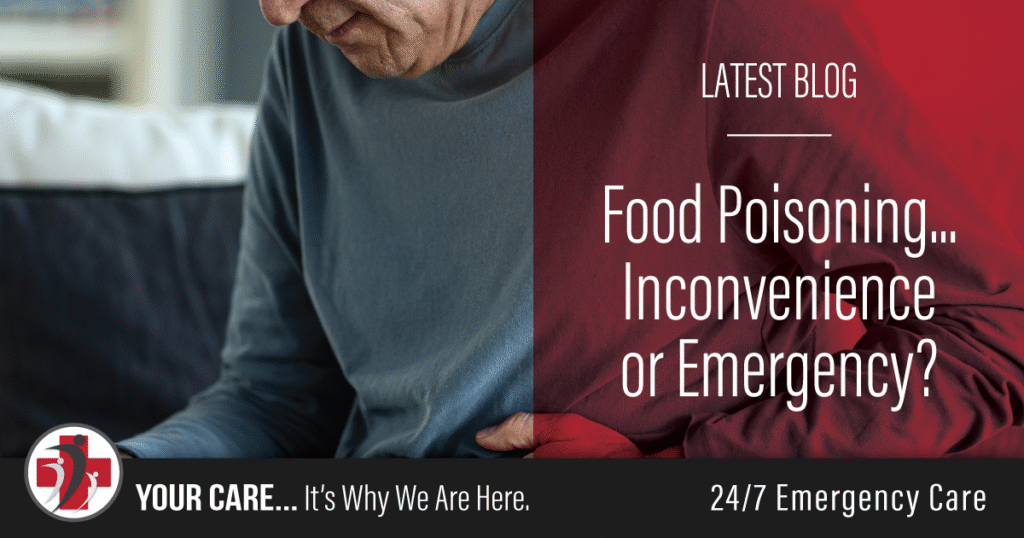It’s THE WORST. You wake up in the middle of the night to stomach pain, nausea, a fever, headache and/or diarrhea, and you realize you likely have a case of food poisoning. And these symptoms can be downright miserable. So what do you do? Is your stomach cramping and terrible diarrhea cause for emergency care? Or is it okay to ride it out in the (dis)comfort of your own home?
It would be helpful to first review what causes food poisoning. When food or drink that you consume is contaminated, often because it’s unclean, has been cross-contaminated, has not been properly stored, or has not been cooked properly, you’re likely to get sick. This is because food that fits these categories will often harbor bacteria, toxins, or parasites. Food poisoning is likely to develop rapidly, and last a day or two. (this is in comparison to a stomach virus, or “stomach flu,” which usually takes a day or two to develop after exposure)
Types of bacteria that can cause food poisoning include salmonella, listeria, Norovirus, E. coli, campylobacter, and rotavirus, and more. Different bacterial infections result in different symptoms. You can find a helpful chart of bacteria and viruses and resulting symptoms here: Bacteria and Viruses | FoodSafety.gov
While none of the common food poisoning symptoms are pleasant, there are a few to watch out for that could indicate your case requires urgent medical attention.
You could need urgent, or emergency, medical care in Fountain Hills if you experience any of the following food poisoning symptoms:
- Vomit that is yellow or green in color
- Severe abdominal cramps
- Fever over 101 degrees Fahrenheit
- Blood in vomit or stool
- Frequent vomiting that prevents you from keeping liquids down
- Blurred vision or slurred speech
- Weakness or paralysis
- Numbness or tingling of the skin
With any of the above symptoms, go right away to the Fountain Hills Medical Center emergency room or else your nearest emergency room.
Non-emergency food poisoning symptoms, including nausea, vomiting, diarrhea, low fever, stomach cramps, and headaches, can often be treated at home. We recommend staying hydrated with water or electrolyte-rich beverages, allowing your body extra sleep, and eating foods that are easy on your stomach once you feel hungry again.
Even if your food poisoning does not result in a trip to a Fountain Hills emergency room, there are still a few things that could warrant a trip to the Fountain Hills Medical Center clinic if they have not resolved in a few days:
- Bloody and/or severe diarrhea that lasts more than three days
- A high fever that lasts more than three days
- Symptoms of dehydration such as extreme thirst or a dry mouth
Please note that it’s important that if you feel worried or concerned about any food poisoning symptoms, you should always call Poison Control at 1-800-222-1222, or come right away to the Fountain Hills Medical Center. It’s always better to be safe than sorry, especially when it comes to your health or the health of your loved ones.

